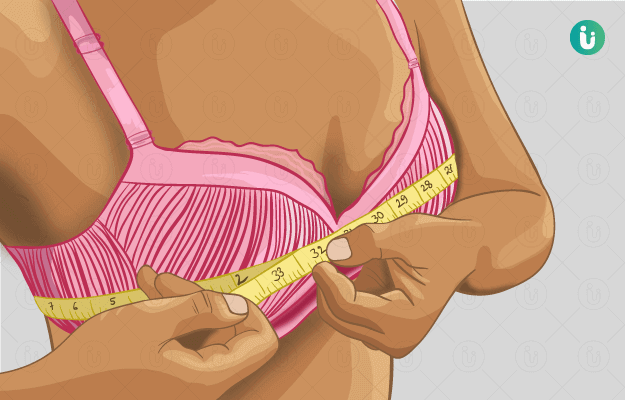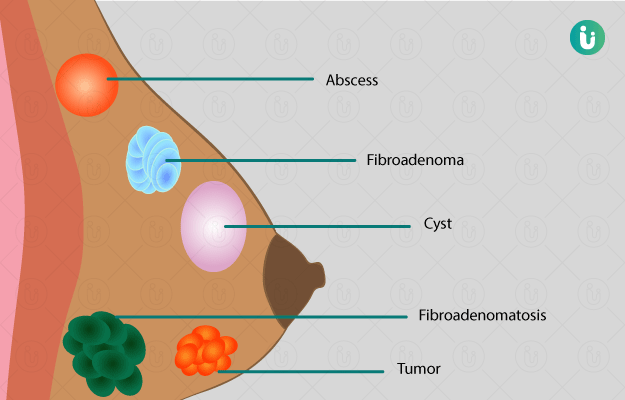Delay in menstruation can be a very disturbing situation for some women. Especially those women who face more problems who have been having regular periods earlier or who do not want to conceive.
Menstruation usually starts at the age of 10 to 16 years i.e. during puberty and lasts till the age of 45 to 55 (menopause). The time between menstruation is usually 28 days, but in some women it can be a little less or more, which is a normal condition. If it takes more than 35 days for a woman to get periods, then that condition can be called late periods.
Late menstruation is a type of condition called oligomenorrhea, in which women's menstruation becomes irregular. If there has been some change in contraceptive methods, a change in the woman's hormones, a change in hormones around the time of menopause or even some types of exercises, which can cause oligomenorrhea.
If the problem of late periods is happening during puberty or around the age of menopause, then there is no need to get it treated. However, if menstruation is getting delayed at the age of conception, then one should talk to the doctor about it.
Read More - (2 periods in one month)
- Symptoms Of Late Periods
- Reasons For Delay In Menstruation
- Treatment Of Delay In Menstruation
- Summary
Symptoms Of Late Periods
What are the symptoms of late periods?
As mentioned above, the normal menstrual period in a woman is 28 days, although according to different physical conditions, menstruation in a period of 24 to 35 days is considered a normal condition. Most women have 11 to 13 menstrual periods in a year. Menstruation usually lasts for five days, but some women bleed for only 2 days while some women bleed for 7 days. When a girl starts having periods, they are usually not regular and after about two years they start having regular periods. Having regular periods means that the time period between periods is the same every time.
Some women have a period of more than 35 days between periods and during this time the amount of blood also changes a lot. Its most important symptom is that periods take more than 35 days to come. Apart from this, feeling any kind of change in blood during periods or seeing large blood clots (usually larger than 2.5 centimeters in size) can also be a symptom of late periods or irregular menstruation.
When should you see a doctor?
If you feel that it takes more time than usual for you to get your period, then talk to a doctor. The doctor can find out the reason for your menstruation delay by doing tests. If you can tell the doctor the exact date of the last few menstrual periods, it can help the doctor a lot in diagnosing the condition. Apart from this, if you are feeling the following symptoms, then see a doctor as soon as possible:
- Extraordinarily heavy bleeding
- Fever
- Nausea and vomiting
- Bleeding for more than seven days
- Having periods after menopause, especially when it has been a year since you last had menstruation.
(Read more - How to get periods early)
Reasons For Delay In Menstruation
What are the reasons for delay in menstruation?
Taking a little more time for periods to occur can be a normal situation in some cases, while in other cases it can also be a sign of a serious condition. There are some health conditions that can cause a delay in menstruation:
Stress:
Physical or mental stress can cause some fluctuations in your hormone levels, changes in your normal daily activities and affect the hypothalamus. The hypothalamus is the part of the brain that controls the hormone levels. Over time, stress makes a person sick and leads to sudden loss or gain of body weight. All these conditions affect the menstrual cycle of women.
Low body weight:
There are some eating disorders like bulimia and anorexia nervosa that can cause a delay in menstruation. If a woman has less body weight as per her height, then her body functioning can change and as a result her menstrual period can also be affected.
Obesity:
Just as low body weight affects menstrual irregularities, similarly having more than normal body weight can also cause a delay in menstruation. Obesity as well as delay in menstruation can sometimes be a sign of a serious health condition, so it is better to see a doctor.
Polycystic Ovary Syndrome:
PCOS is a condition in which more than normal amounts of male hormones start forming in the body of women. In such a situation, cysts start forming in the ovaries, resulting in poor hormone levels. In such a situation, menstruation may be delayed and even periods may stop completely.
Early Perimenopause:
Most women experience menopause at the age of 45 to 55. Women who start developing symptoms of menopause at the age of 40 or even earlier, this condition is called perimenopause. This means that the eggs present in the woman's body stop working properly.
Thyroid problems:
An overactive or underactive thyroid gland can also cause a delay in menstruation. The thyroid gland regulates the body's metabolism, so hormones can also be affected in thyroid problems. Delayed menstruation can be a common problem as a result of hormonal changes.
Chronic diseases:
There are some long-term diseases that can affect the menstrual cycle, such as diabetes and celiac disease. Any change in blood sugar can also be related to hormonal changes, which can make the menstrual cycle irregular.
Celiac disease:
Celiac disease causes effects such as inflammation and irritation, which can damage the small intestine. Due to the small intestine being affected, your body is not able to absorb the necessary nutrients from the food and as a result menstruation can be delayed.
Contraception:
Some types of contraceptives, especially those related to hormones, can cause a delay in menstruation. Some special types of contraceptive pills provide a combination of progesterone and estrogen hormones for a limited period, after which hormones are not secreted in the body for a few days.
Sometimes due to these hormones, the lining of the uterus remains very thin, which is not enough to start the menstrual process and as a result, menstruation starts coming late or can also stop completely. This includes almost all types of contraceptive methods, which are related to hormonal processes such as contraceptive pills, patches, shots, implants and rings etc.
(Read more -Long periods causes and treatment)
Treatment Of Delay In Menstruation
The condition of delay in periods is usually not very serious and neither does it require treatment. However, it is important to get it checked once, because delay in menstruation can also be due to some other physical problems which need to be treated. To treat delayed menstruation, it is treated in the following ways:
Stress and eating disorders:
If you have delayed menstruation due to emotional stress, lack of appetite, excessive hunger and sudden weight loss, etc., then it can be treated with the help of psychological therapy. It mainly includes relaxation techniques, stress management and some other suggestions given by the doctor.
PCOS and obesity:
To treat problems like menstruation in the case of polycystic ovary syndrome, doctors focus on reducing the body weight of the patient. At normal weight, the body does not need to produce more insulin. When this happens, the abnormally increased level of testosterone hormone decreases and the process of menstruation improves.
Thyroid problems:
If periods are getting delayed due to thyroid problems, then to treat this condition, doctors can take the help of radioactive iodine therapy or surgery etc.
Puberty and menopause:
If menstruation is delayed during puberty or menopause, there is usually no need to treat this condition. However, the doctor may do a check-up once to make sure that it is not due to any health problem.
Contraceptive methods:
If the problem of delayed menstruation is due to taking contraceptive pills or adopting any other method, then the doctor can give some medicines to control the condition. These medicines mainly include medicines that control the level of hormones.
- Medicines commonly used in the treatment of delayed menstruation
- During conditions like diabetes, the doctor can give metformin medicines, which are insulin-reducing medicines. These medicines help in regulating the menstrual cycle.
- Contraceptive pills that contain a combination of estrogen or progesterone are given in low doses. By doing this, the production of androgens is reduced and problems like abnormal bleeding during menstruation and delayed menstruation start getting cured.
(Read more - When does ovulation start after a period?)
Summary
There can be many reasons for delayed periods, such as stress, hormonal imbalances, weight changes, excessive exercise, or thyroid-related problems. Pregnancy can also be a common cause of delayed periods. For treatment, it is necessary to first balance the lifestyle, which includes a healthy diet, regular exercise, and stress management. Some natural remedies, such as consuming ginger or jaggery, can also be helpful. If the problem is recurring, it is important to consult a doctor and get the necessary tests done, so that the exact cause can be found out and proper treatment can be done.
Find Obstetrician and Gynaecologist in cities
- Obstetrician and Gynaecologist in Bangalore
- Obstetrician and Gynaecologist in Mumbai
- Obstetrician and Gynaecologist in Ghaziabad
- Obstetrician and Gynaecologist in Chennai
- Obstetrician and Gynaecologist in Pune
- Obstetrician and Gynaecologist in Delhi
- Obstetrician and Gynaecologist in Hyderabad
- Obstetrician and Gynaecologist in New Delhi
- Obstetrician and Gynaecologist in Gwalior
- Obstetrician and Gynaecologist in Gurgaon
Doctors for Is Your Period Late? Here’s What You Need to Know

Dr. Ayushi Gandhi
Obstetrics & Gynaecology
4 Years of Experience

Dr. Anjali
Obstetrics & Gynaecology
23 Years of Experience

Dr.Anuja Ojha
Obstetrics & Gynaecology
20 Years of Experience










































